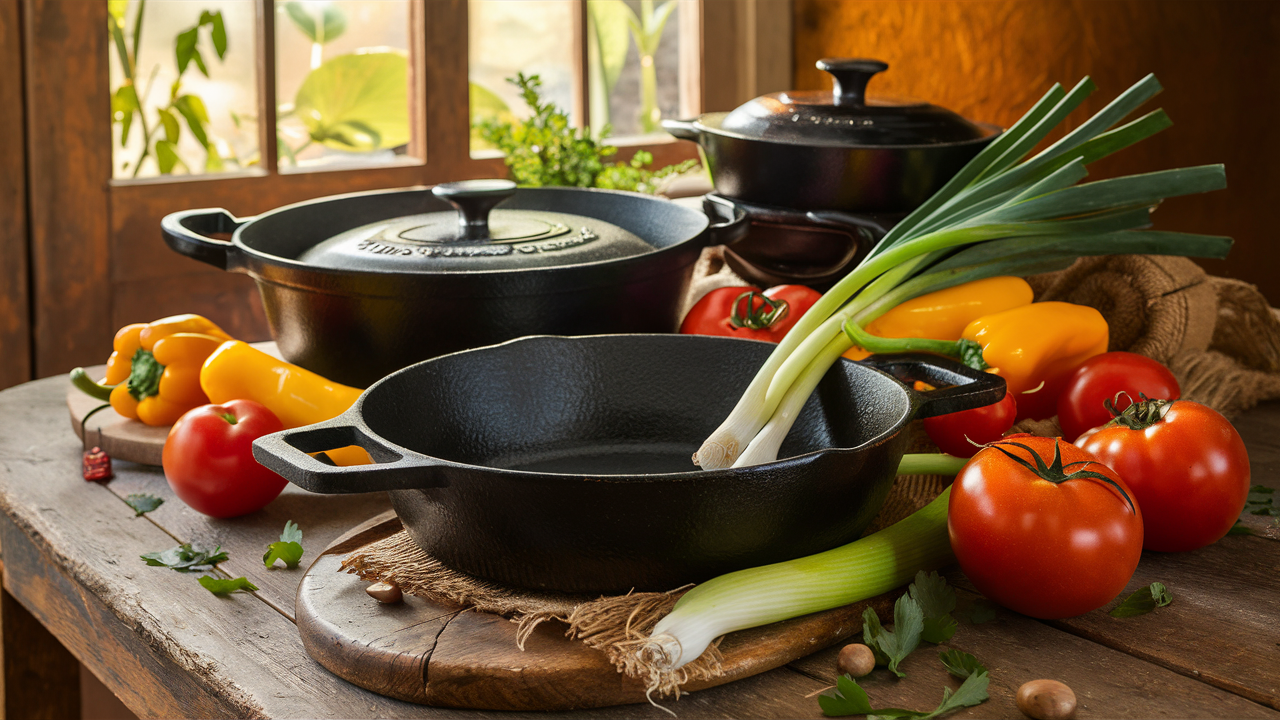Cast iron cookware has been a staple in kitchens for centuries, and for good reason. Known for its durability and versatility, cast iron offers a range of benefits that make it a favorite among home cooks and professional chefs alike. In this guide, we’ll explore the many advantages of using cast iron cookware and why it deserves a place in your kitchen.
Unmatched Durability
One of the most significant benefits of cast iron cookware is its unmatched durability. Unlike other types of cookware that may warp or degrade over time, cast iron is built to last. With proper care, a cast iron skillet can last for generations, making it a worthwhile investment for any kitchen.
According to a survey by the Cookware Manufacturers Association, 80% of consumers consider durability a top factor when purchasing cookware. This highlights the enduring appeal of cast iron as a reliable and long-lasting option.
Superior Heat Retention
Cast iron is renowned for its superior heat retention, which ensures even cooking and consistent results. Once heated, cast iron maintains its temperature, making it ideal for searing meats, frying, and baking. This quality also allows for energy-efficient cooking, as you can often use lower heat settings.
Versatility in Cooking
The versatility of cast iron cookware is another reason for its popularity. From stovetop to oven, cast iron can handle a wide range of cooking methods. Whether you’re frying, baking, roasting, or even grilling, cast iron delivers exceptional results.
- Stovetop to Oven: Cast iron’s ability to transition seamlessly from stovetop to oven makes it perfect for dishes that require both methods, such as frittatas or cornbread.
- Outdoor Cooking: Cast iron is also a favorite for outdoor cooking, whether you’re using it over a campfire or on a grill.
Health Benefits
Cooking with cast iron can offer health benefits as well. Unlike non-stick cookware that may release harmful chemicals at high temperatures, cast iron is a natural and safe option. Additionally, cooking with cast iron can increase the iron content of your food, which is beneficial for those with iron deficiencies.
A study published in the Journal of Food Science found that cooking with cast iron can increase the iron content of food by up to 20%, providing a natural way to boost your iron intake.
Easy Maintenance
While cast iron requires some maintenance, it is relatively easy to care for once you understand the process. Seasoning your cast iron cookware creates a natural non-stick surface and protects it from rust. With regular use and proper cleaning, your cast iron will improve over time.
- Seasoning: To season your cast iron, apply a thin layer of oil and bake it in the oven. This process creates a protective layer that enhances its non-stick properties.
- Cleaning: Avoid using soap on your cast iron. Instead, use hot water and a stiff brush to clean it. Dry it thoroughly to prevent rust.
Cost-Effective
Investing in cast iron cookware is cost-effective in the long run. While the initial purchase price may be higher than some other types of cookware, its longevity and versatility make it a smart investment. You won’t need to replace your cast iron skillet every few years, saving you money over time.
Conclusion
The benefits of using cast iron cookware are numerous, from its durability and heat retention to its versatility and health benefits. Whether you’re a seasoned chef or a home cook, cast iron is a valuable addition to any kitchen.
By understanding the advantages of cast iron and incorporating it into your cooking routine, you can enjoy delicious meals and a reliable cooking experience. Remember, with proper care and maintenance, your cast iron cookware will serve you well for years to come. Happy cooking!

